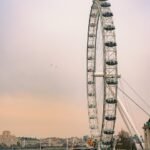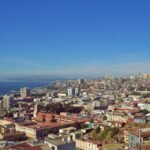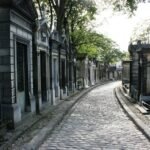Wondering when to go to Vancouver without running into huge crowds or bad weather? Planning a trip can feel overwhelming, especially when you're trying to find the right balance between budget, activities, and weather. The ideal time to visit Vancouver really depends on what you want to experience. Whether you're keen on cultural events, outdoor adventures, or simply soaking up the vibrant city life, the timing can make all the difference!
Overview of Vancouver’s Climate
Before diving into the details, let's talk about the weather in Vancouver. The city experiences a temperate maritime climate, characterized by mild, rainy winters and warm summers. If you're wondering about the seasons in Vancouver, here's the scoop:
-
Summer (June to August): Temperatures can soar to the mid-20s °C (around 75°F) or more. It's warm, dry, and one of the most popular times to visit.
-
Fall (September to November): The temperature begins to cool, ranging from 10°C to 20°C (50°F to 68°F). The landscape transforms with fall colors, making it picturesque.
-
Winter (December to February): Expect cold temperatures around 0°C to 10°C (32°F to 50°F) and plenty of rain.
- Spring (March to May): You'll see temperatures starting to rise again, generally between 5°C to 15°C (41°F to 59°F), with blooming flowers heralding a new season.
Now that you have a feel for the climate, let's break down the best times to enjoy Vancouver!
Month-by-Month or Seasonal Breakdown
Winter (December to February)
- Weather: Cold and wet; snowfall is rare but possible.
- Events: The Vancouver International Film Festival runs into early December. You can also enjoy the festive lights and activities around Christmas in the city.
- Pros: Fewer tourists means quieter attractions, and you might snag some great deals on accommodations.
- Cons: Rain is more common, and outdoor activities may be limited to indoor attractions or some seasonal festivities.
- Best for: Budget travelers or anyone who enjoys a cozy vibe.
Spring (March to May)
- Weather: Generally mild, with temperatures starting at around 5°C and rising as the season progresses.
- Events: Cherry Blossom Festival in April is a major highlight, and the Vancouver Sun Run occurs in April as well.
- Pros: Beautiful blooms and fewer crowds make for stunning photography opportunities.
- Cons: You may experience some rainy days, but they are usually interspersed with sunny spells.
- Best for: Photographers and nature lovers keen on fresh blooms.
Summer (June to August)
- Weather: Warm and mostly clear skies; this is the peak tourist season with temperatures often exceeding 25°C (77°F).
- Events: Various festivals like the Vancouver Folk Music Festival and Celebration of Light, a fireworks competition, are major attractions during the summer months.
- Pros: Long daylight hours and numerous outdoor activities, from cycling to kayaking.
- Cons: Higher prices for accommodations and packed tourist spots.
- Best for: Beach lovers and outdoor activity enthusiasts.
Fall (September to November)
- Weather: Cool weather, with the onset of rain. Temperatures range from around 10°C to 20°C (50°F to 68°F).
- Events: The Vancouver International Film Festival in October and various other cultural events.
- Pros: Fewer tourists, lower accommodation prices, and beautiful autumn foliage.
- Cons: The risk of increased rainfall as winter approaches.
- Best for: Travelers looking for a quieter experience with rich cultural engagements.
Tips Based on Travel Style
So when should you travel to Vancouver based on your style? Here are some tailored suggestions!
-
For Budget Travel: Late fall (October to November) or winter (January to February) is your best bet. You'll find lower prices for hotels and flights, plus the benefit of fewer crowds.
-
For Avoiding Crowds: Spring (March to May) or fall (September to November) usually hold fewer tourists compared to peak summer months.
-
For Outdoor Activities: Summer is prime time for hiking, cycling, and water sports. Just be prepared for crowds, especially at popular spots like Stanley Park.
-
For Cultural Events: Spring and fall offer unique festivals and local events, making those months particularly exciting for anyone into arts and culture.
- For Romantic or Solo Trips: Spring, with its blossoming beauty, offers a serene and romantic atmosphere, while fall has the quiet charm of colorful leaves and cozy cafés.
It really depends on what kind of experience you're looking for. Some travelers love February for its cozy vibe and quieter streets, while others aim for the vibrant festivals in July or the colorful fall scenery in October.
Quick FAQs
-
Is December a good time to visit Vancouver?
Yes, if you enjoy holiday festivities and lighter crowds! Just be ready for the rain. -
When is the rainy season in Vancouver?
Rain is quite frequent from October through March, with November typically being the wettest month. -
What's the cheapest time to visit Vancouver?
January and February often have the lowest hotel and flight prices. - What's the peak season in Vancouver?
Summer (June to August) is peak tourist season, especially because of the pleasant weather.
Vancouver's charm lies in its diverse seasons and the unique experiences they offer. Whether you're after sun-soaked adventures or peaceful retreats amidst autumn leaves, you'll find the perfect time for your visit!








